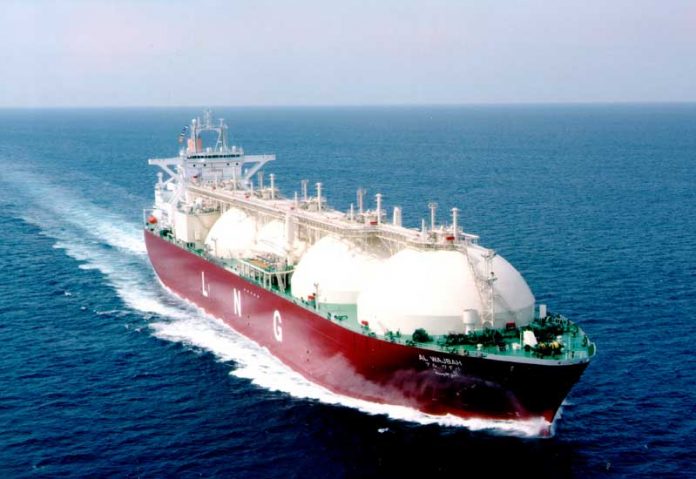KARACHI: A recently inaugurated second LNG terminal at Port Qasim, Karachi has suffered a major technical fault in its underground pipeline, resulting in major interruption of gas supplies.
The recently inaugurated terminal was opened to much public fanfare by Prime Minister Shahid Khaqan Abbasi a few weeks ago and now its underground pipeline has suffered a major technical problem, causing issues in injection of re-gasified LNG into the system, reported Dawn.
According to industry sources, this may cause repudiation of some lined-up cargoes over the next few weeks. The underground pipeline got damaged when building gas pressure from LNG from third shipment.
And two ships ready for delivery were embarked at the terminal when this incident took place. This has raised questions over quality of floating storage and re-gasification unit (FSRU), said insiders.
They added initial testing was bound to be completed at 50 per-cent higher pressure i.e. above 1,500 pounds per square inch (PSI) but the pipeline got damaged below pressure of 1,000 PSI.
This underground pipeline rupture at Pakistan Gas Port Limited’s FSRU was said to be so damaging that an emergency apparatus had to be arranged, said a source. The issue is expected to be fixed in minimum of 10-15 days.
The source disclosed shipments would require diversion and could face deference or cancellations. The authorities were in talks with supplies to resolve this issue in interest of long-term contracts or repercussions in face of force majeure may have to be faced by the government.
This problem could create major gas shortages, as winter onsets and many areas in Punjab are already reportedly complaining of low-gas pressure. LNG shipments secured in January this year via competitive bidding from ENI and Gunver were being marred by delays due to infrastructure problems.
LNG-based power plants based in Punjab, namely Bhikki, Balloki and Haveli Bahadur Shah having capacity of 1,200 megawatt each were expected to be recipients of this LNG shipment from the second terminal.




